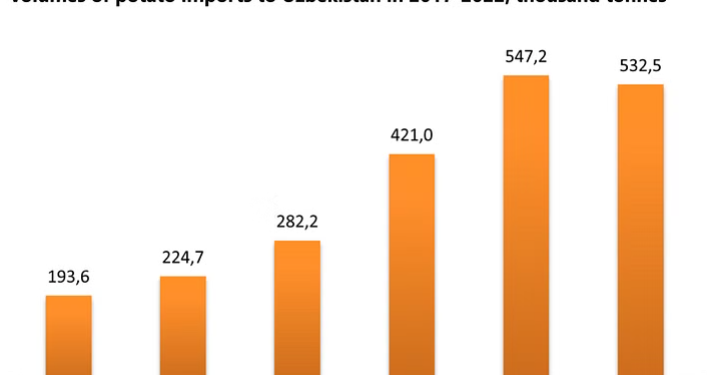#PotatoIndustry #DomesticProduction #GlobalSupplyChain #COVID19Impact #InternationalTrade #GovernmentSupport #LocalFarmers.
The State of Potato Imports in Uzbekistan: Potatoes are a staple food in Uzbekistan, and the country has been heavily reliant on imports to meet its domestic demand. However, in 2023, the country has seen a decline in potato imports for the first time in five years. According to the State Statistics Committee of Uzbekistan, potato imports have decreased by 15.6% in the first quarter of 2023, compared to the same period last year.
Factors Contributing to the Decrease in Potato Imports: There are several factors contributing to the decrease in potato imports in Uzbekistan. One of the main reasons is the increase in domestic potato production. The government has been implementing various programs to support local farmers, including providing subsidies and improving access to technology and equipment. As a result, the country has seen a significant increase in potato production, reducing the need for imports.
Another factor is the COVID-19 pandemic, which has disrupted global supply chains and increased the cost of transportation. This has made it more expensive to import potatoes, making it more economical for Uzbekistan to rely on domestic production.
Implications for Uzbekistan’s Potato Industry: The decline in potato imports is a positive development for Uzbekistan’s potato industry. It shows that the government’s efforts to support local farmers are paying off, and domestic production is increasing. This could lead to further investment in the sector and could ultimately make Uzbekistan self-sufficient in potato production.
However, it also has implications for international potato exporters who previously supplied the Uzbekistan market. With the decrease in demand, they may need to look for new markets to sell their potatoes.
In conclusion, the decrease in potato imports in Uzbekistan is a significant shift in the country’s potato industry. It highlights the importance of government support for local farmers and could have long-term implications for both domestic growers and international exporters.







